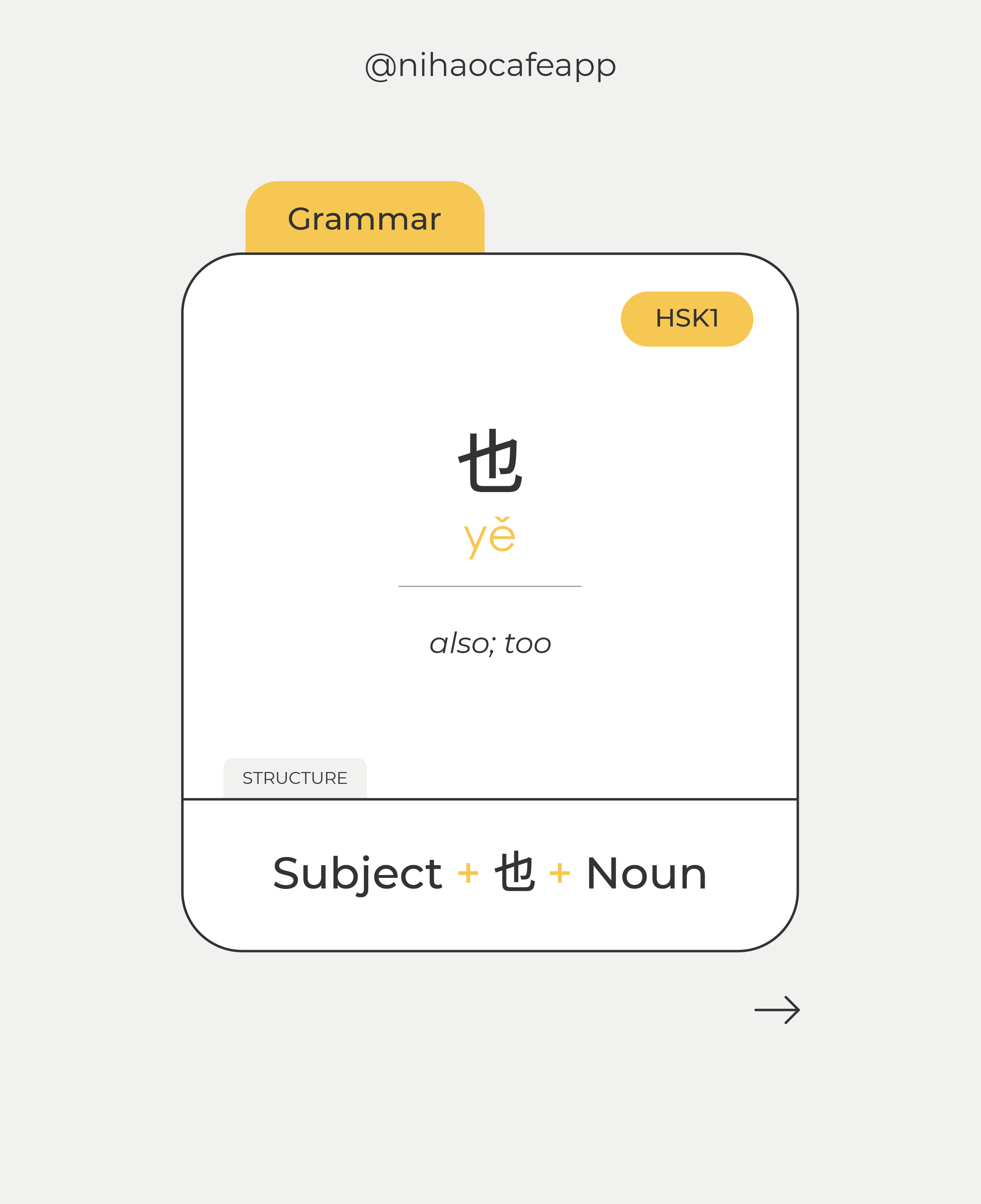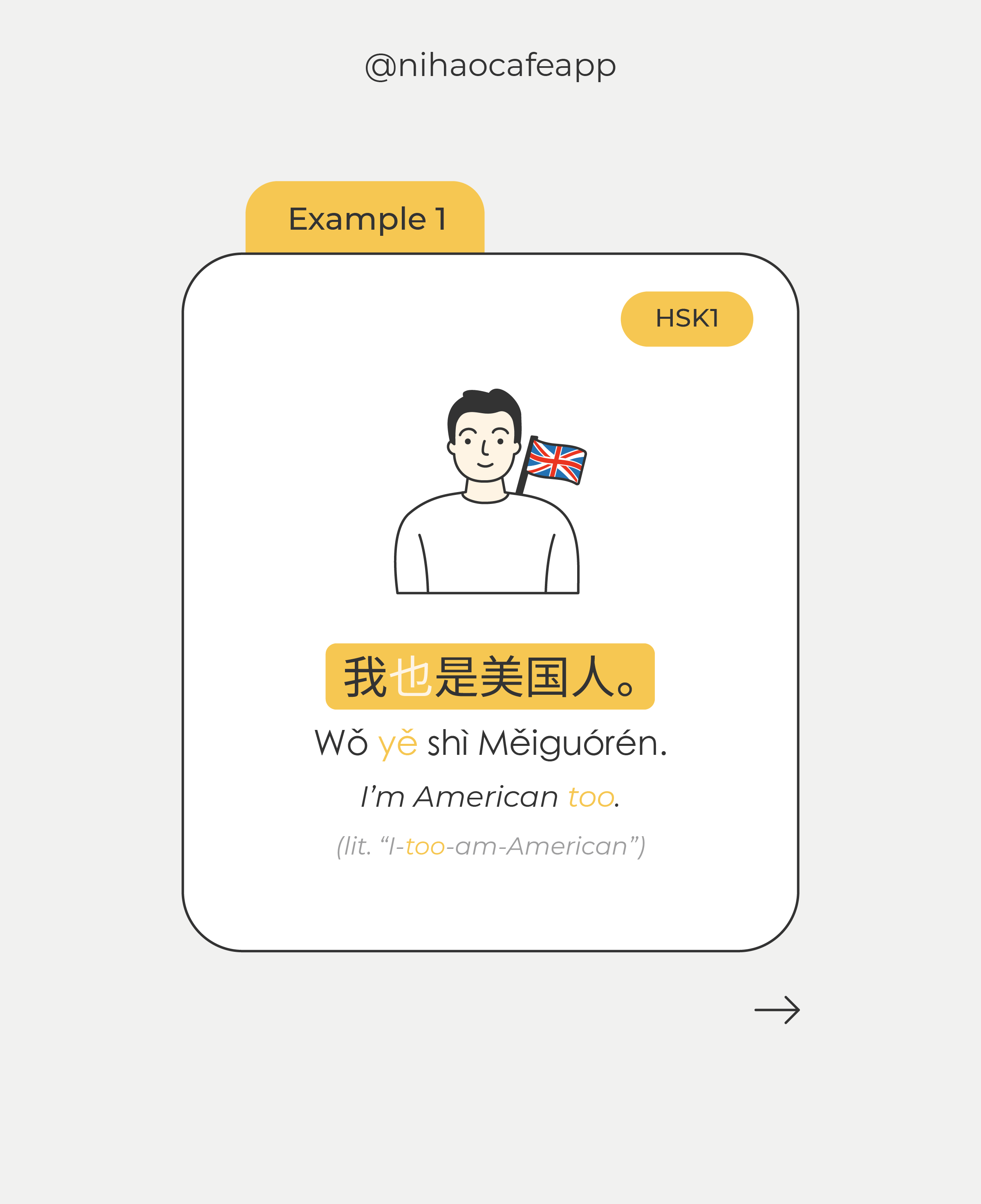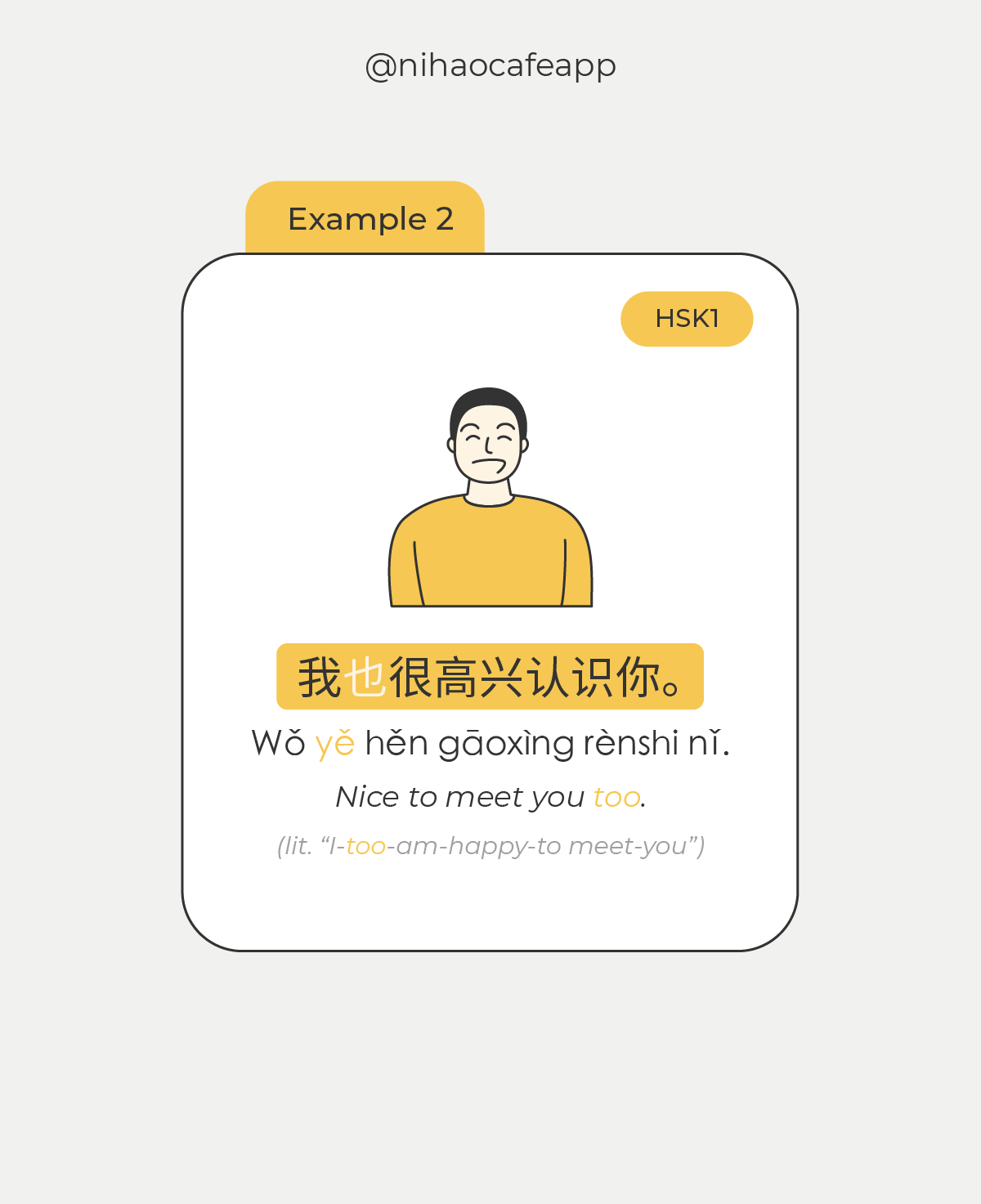FUNCTION
Notice that 也 always comes before the verb:
I’m American too.
(lit. “I-also-am-American.”)
Nice to meet you too.
(lit. “I-also-am-happy-to meet-you.”)
STRUCTURE
Practice with the Quiz
Got the 也 grammar? It’s time to practice!
Test your skills with our short quiz 👇





